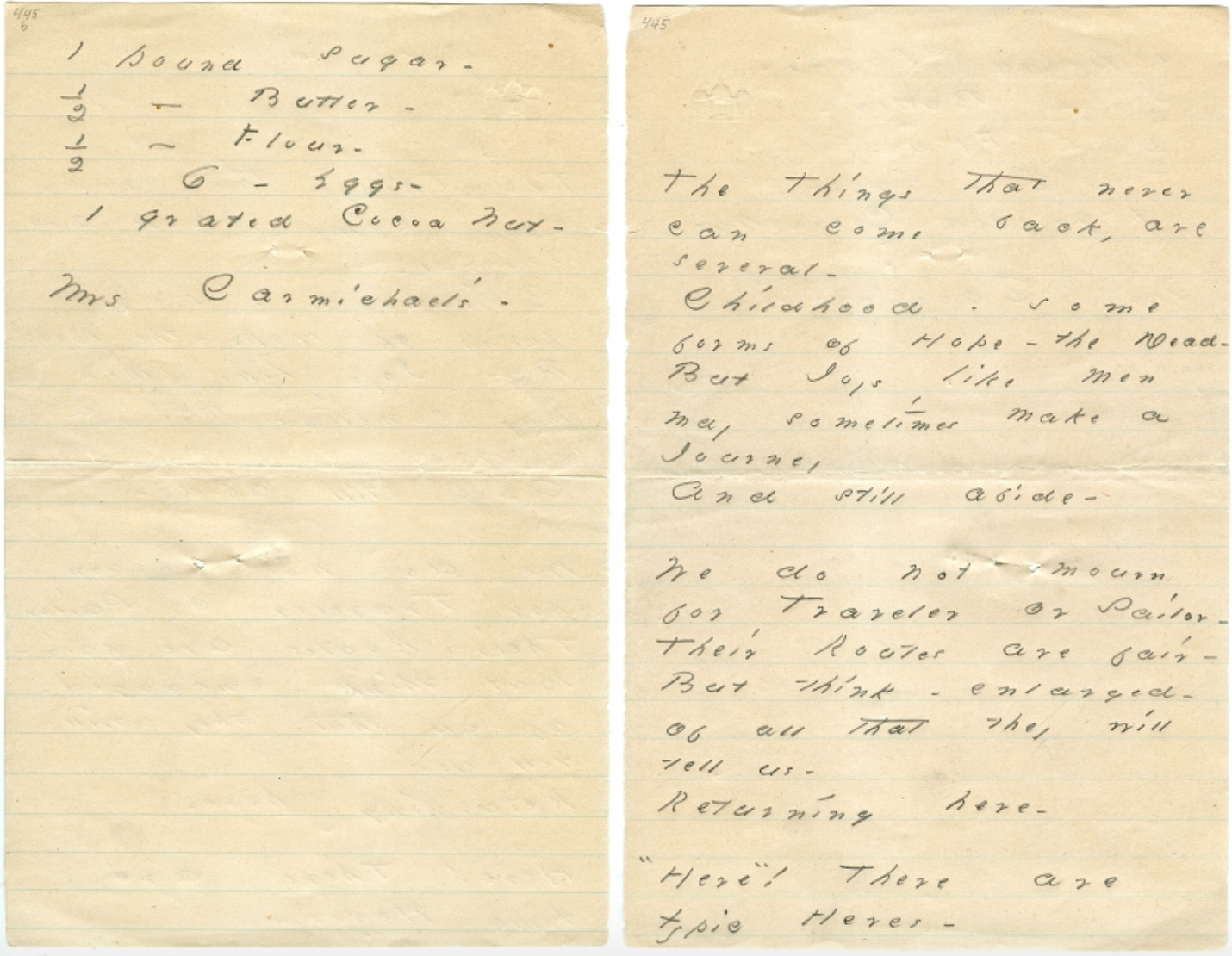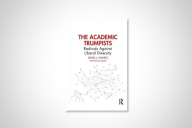You have /5 articles left.
Sign up for a free account or log in.
CHICAGO -- Among the books on display at this year’s annual meeting of the Modern Language Association was something unusual: a literature-inspired cookbook written by MLA members and staffers. The 27-page book, called MLA Members Cook! Cherished Recipes Inspired by Literature, features beverages, appetizers and side dishes, mains, and desserts.
Sales support the organization. The project in general supports the notion that literature, like food, is delicious and should be shared.
Angela Gibson, director of scholarly communication at MLA, said the organization wanted to give members “an opportunity to put their research and teaching interests in touch with the many creative endeavors they pursue -- and to come together to do something just plain fun. Food seemed like an obvious place to start.”
Emily VanDette, an associate professor of English at the State University of New York at Fredonia who specializes in 19th-century American women’s literature, contributed a recipe called Emily Dickinson’s Coconut Cake. (A photo of the icing-smothered confection graces the cookbook’s cover.)
Dickinson scholars, fans and those who have visited the Massachusetts museum devoted to the poet will probably know that she was an avid baker who sometimes combined her two passions: her recipe for coconut cake was inked on the back of a handwritten poem.

Source: Amherst College Digital Archive
Inclined to help support the MLA with the book, VanDette immediately knew she wanted to share the coconut cake recipe. But she modernized it: VanDette’s recipe is vegan, while Dickinson’s original calls for 1/2 cup of butter and milk each and two eggs. Still, VanDette said she thought Dickinson would approve.
Asked why literature pairs so well with food, VanDette said that many of the best cooks she knows love literature, or are writers, or both.
“I'm not sure why, but perhaps there is a certain appreciation for the aesthetics of food and the creative process of producing it that makes readers and writers such good foodies,” she said. “And then there's the social experience that is a part of creating and devouring literature and food.”
VanDette added, “That was certainly the case for Dickinson, who was known for sharing both her baked goods and her poems with her loved ones.”
Gibson said the MLA's members were enthusiastic about the project over all, and that the organization is pleased with the “sheer range of recipes in the cookbook. Evident, too, is their literary lineage.”
Indeed, there are some punny, more familiar recipes, such as Much Ado About Gnocchi. Don’t let the name fool, you, though: contributor Mary Learner, a Ph.D. candidate in English and comparative literature at the University of North Carolina at Chapel Hill, notes that gnocchi is “more than nothing.” She also included several sauce options inspired by characters in the gnocchi's Shakespearean namesake, including Don John’s “green-eyed monster” pesto and Beatrice’s bolognese.
John Scheckter, professor of English at Long Island University, shared a recipe for Walt Whitman’s Cranberry Sauce, complete with a “long-lost” Whitman poem called “Song of My Sauce.” And for thirsty MLA style-heads over 21, there’s the MLA staff’s Pear-enthetical Citation, a pear liqueur- and triple sec-based concoction. (That cocktail and others parallel the American Historical Association’s tradition of featuring historically themed cocktails at the hotel bars at its annual meetings. Last year’s were Rosé the Riveter, Libation Without Representation and Moscow Mueller -- all served in Washington.)
Then there are evocative recipes from around the globe. Tao Leigh Goffe, assistant professor of social and cultural analysis at New York University, shared a recipe for Stuffed Aubergine Curry, which she said she’d learned from her mother-in-law. Her description of it reads like literature: “Curry is the colonial entanglement that connects Africa, Asia and Europe in her culture -- Kenyan Indian British -- and mine -- Afro-Jamaican Chinese British,” Goffe wrote of her mother-in-law. “[She] learned to cook from her mother, who learned a repertoire of generations of Indian recipes in Kenya.”
Goffe says the recipe also recalls Amitav Ghosh’s novel on servitude around the time of the Opium Wars, Sea of Poppies, in which a food -- as it so often does -- serves as metaphor. “Ghosh gives the reader a sense of the scale of variation for the same dish within household, family and village,” Goffe wrote.
Hasselback potatoes are inspired by Pablo Neruda’s “Oda a Las Papas Fritas” and Russian pancakes, by the many Russian literary works that feature characters eating them. An adafina stew recipe is dedicated to the often food-centric 15th-century “converso” poems written by and about Jews who converted to Christianity to avoid the Spanish Inquisition. Dongpo soup honors the 11th-century Chinese poet, calligrapher and food connoisseur Su Shi, who also was known as Su Dongpo.
Room for more dessert? Rosemary Feal, former executive director of the MLA and currently a visiting scholar at Harvard University's David Rockefeller Center for Latin American Studies, keeps things in flagrante delicto with her recipe for Cheater’s Cheesecake.
Quoting Don DeLillo’s Underworld, Feal introduces her sumptuous, sour cream-infused cake this way: “The cheesecake was smooth and lush, with the personality of a warm and well-to-do uncle who knows a hundred dirty jokes and will die of sexual exertion in the arms of his mistress.”
Bon appétit!









